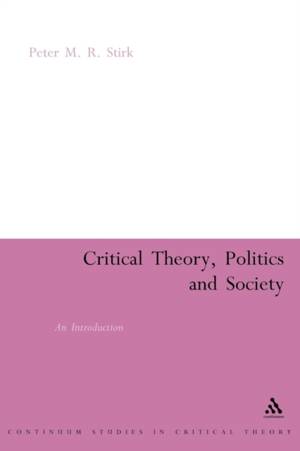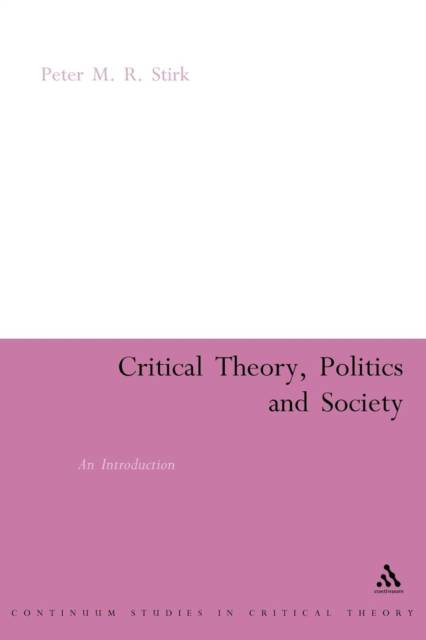
Bedankt voor het vertrouwen het afgelopen jaar! Om jou te bedanken bieden we GRATIS verzending (in België) aan op alles gedurende de hele maand januari.
- Afhalen na 1 uur in een winkel met voorraad
- In januari gratis thuislevering in België
- Ruim aanbod met 7 miljoen producten
Bedankt voor het vertrouwen het afgelopen jaar! Om jou te bedanken bieden we GRATIS verzending (in België) aan op alles gedurende de hele maand januari.
- Afhalen na 1 uur in een winkel met voorraad
- In januari gratis thuislevering in België
- Ruim aanbod met 7 miljoen producten
Zoeken
€ 89,95
+ 179 punten
Uitvoering
Omschrijving
From the launch of the Journal of Social Research in 1932 to the recent work of Jurgen Habermas on law and democracy, the Frankfurt School has produced some of the most ambitious and influential theories of the past century. This new introduction to the critical theory of the School provides a thorough, concise and up-to-date assessment of thinkers including Pollock, Marcuse, Horkheimer, Adorno, Neumann, Lowenthal, Fromm, Kirchheimer and Habermas. Peter Stirk's lively account places the formative work of the School within the context of the Weimar Republic and of Nazi Germany. He contrasts this environment with the very different background of 1950s Germany in which Habermas embarked on his academic career. Stirk goes on to discuss the enduring relevance of political theory to the contemporary political agenda. In particular, he illustrates the continuing validity of the Frankfurt School's criticism of positivist, metaphysical and more recently postmodernist views, and its members' attempts to incorporate psychological perspectives into broader theories of social dynamics. He assesses their contribution to key areas of contemporary debate, including morality, interest, individual and collective identity and the analysis of authoritarian and democratic states. Specifically focused on the interests and needs of social scientists, philosophers and historians of ideas, Critical Theory, Politics and Society is an essential book both for students and for all those who wish to grasp the contours of critical theory and to understand its enduring relevance.
Specificaties
Betrokkenen
- Auteur(s):
- Uitgeverij:
Inhoud
- Aantal bladzijden:
- 256
- Taal:
- Engels
- Reeks:
Eigenschappen
- Productcode (EAN):
- 9780826478917
- Verschijningsdatum:
- 26/10/2005
- Uitvoering:
- Paperback
- Formaat:
- Trade paperback (VS)
- Afmetingen:
- 152 mm x 231 mm
- Gewicht:
- 394 g

Alleen bij Standaard Boekhandel
+ 179 punten op je klantenkaart van Standaard Boekhandel
Beoordelingen
We publiceren alleen reviews die voldoen aan de voorwaarden voor reviews. Bekijk onze voorwaarden voor reviews.









